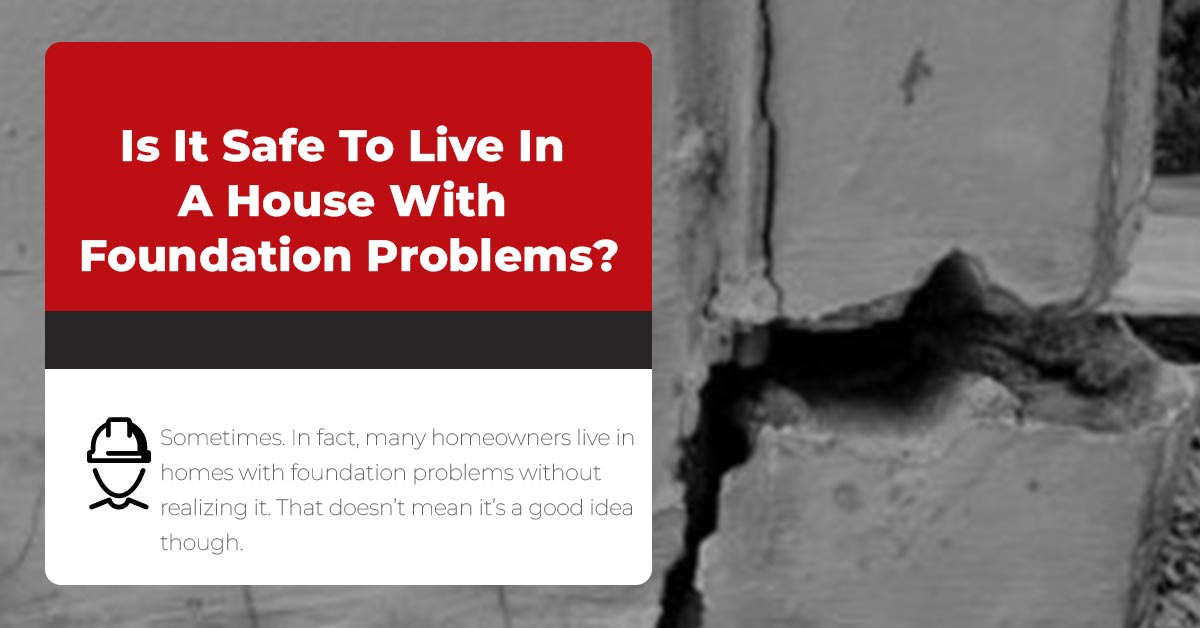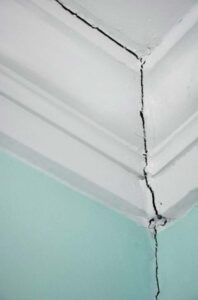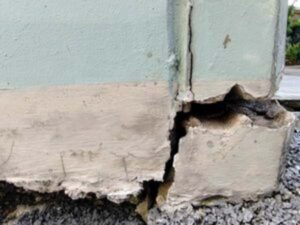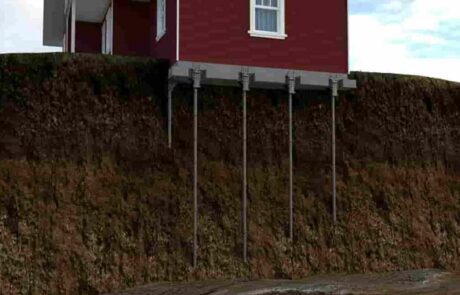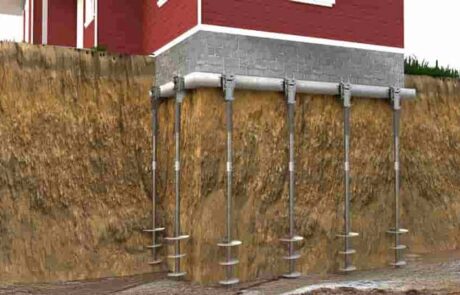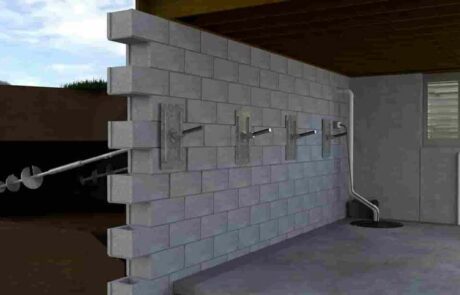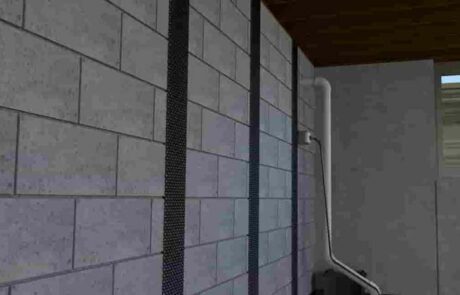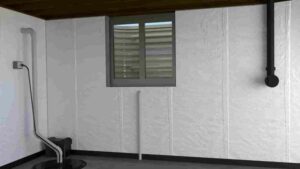Are you wondering if it’s safe to live in a house with foundation problems? If so, you’ve landed on the right page because that’s what we’re going to talk about in this article. We’ll cover if it’s safe to live in a house with foundation problems, the causes of foundation trouble, repair options, and more.
Is It Safe To Live In A House With Foundation Problems?
Sometimes, it is. In fact, many homeowners live in homes with foundation problems without realizing it.
That doesn’t mean it’s a good idea, though.
Living in a house with foundation problems can be risky and unsafe. Foundation problems can lead to structural damage, which can cause the house to become unstable and potentially dangerous for inhabitants.
Foundation issues may also lead to water seepage and indoor flooding, resulting in mold or mildew growth. This can create a hazardous environment resulting in respiratory illnesses or other health-related issues.
The Good News Is, Foundation Problems Can Almost Always Be Repaired
A foundation is rarely so severely damaged that it needs to be replaced. When this happens, the cause is usually something catastrophic, like an earthquake or a hurricane.
Most of the time, a foundation can be repaired.
If you suspect your home has a foundation problem, it’s crucial to get an inspection from a professional foundation repair contractor or a structural engineer. They can accurately assess any existing damage, identify potential risks and provide cost-effective solutions for restoring your home’s structural integrity.
More Good News – Your House Probably Isn’t Going To Collapse
Unless your home has suffered extensive structural damage from a recent earthquake or other natural disaster, it probably isn’t going to collapse. However, that doesn’t mean that you should ignore a foundation problem. Foundation problems never get better. They always get worse. If you wait, you’ll pay more for the repair later.
When It Might Not Be Safe To Live In A House With Foundation Problems
The following are a few situations where it might not be safe to live in a house with foundation problems:
- Uneven floor – Uneven floors are a trip hazard for people with mobility issues. Someone could fall and get hurt.
- The foundation is being destabilized by downhill creep – Houses built on hillsides sometimes experience foundation destabilization because of downhill creep. This is when the soil at the top of the hill gradually ends up at the bottom of the hill.
- You have a bowing foundation wall with a horizontal crack – This can happen when hydrostatic pressure builds up in the soil because of poor drainage and pushes against the foundation wall. This is serious structural damage.
What Causes Foundation Issues?
Various things cause foundation problems. However, the following are the most common:
- Improper soil preparation – Before anything gets built on top of it, the soil needs to be tamped down. If this isn’t done correctly, the structure will settle into the ground after it’s built, usually unevenly.
- Expansive soil – Soil that contains a high percentage of clay swells as it absorbs water and then shrinks as it dries out. This creates movement in the ground under the foundation, leading to foundation trouble.
- Soil prone to erosion – Erosion-prone soil can lead to the formation of voids under the foundation. If the foundation settles into the voids, there will be trouble.
- Excavation near the foundation – If your neighbor digs a big hole too close to your home, it could destabilize the foundation.
- Large tree roots – Large tree roots can “drink” water from the soil, leaving voids under the foundation.
- Weather changes – An example of this would be building on top of expansive soil during the dry season. When the wet season returns, the ground swells, creating movement under the foundation. This could cause trouble.
- Natural disasters – Earthquakes, hurricanes, and floods all have the potential to cause foundation problems.
Signs Your Home Might Have a Foundation Problem
Your home might have a foundation problem if you see any of the following:
- Doors and windows that don’t open and close properly
- Uneven floors
- Stair step cracks in brick or masonry
- Cracks in walls, floors, or ceilings
- Bowed basement or crawl space walls with or without cracking
- Diagonal cracks from the corners of windows and doors
- Chimneys or porches that lean away from the house
- Floors and ceilings that are no longer in contact with the walls
- Moldings that have separated from the ceiling or wall
If you see any of the above or anything else that seems suspicious, contact an experienced foundation repair contractor right away for an inspection. Foundation problems worsen over time; if you wait, you’ll pay for more repair.
Foundation Repair Solutions
There are various foundation repair solutions depending on the exact cause of the problem. These include the following:
- Underpinning using push piers, helical piers, drilled concrete piers, or slab piers
- Carbon fiber straps
- Wall plate anchors
- Helical wall anchors
- I-beams
- C-channel wall anchors
Is It OK To Buy A Home With A Foundation Problem?
Maybe, depending on the type and severity of the problem. If you’re thinking about buying a home with a foundation problem, it’s essential to get the house inspected by an experienced foundation repair contractor. They’ll give you a repair estimate that you can figure into your offer.
Whatever you do, never buy a house without first having it inspected by a foundation repair contractor or a structural engineer. Just because you don’t see anything wrong with the house doesn’t mean it’s problem-free.
Tips On How To Prevent Foundation Problems
Many homeowners are surprised to hear that most foundation problems are caused by excess moisture in the ground around the foundation. Therefore, you can go a long way toward preventing issues by simply ensuring the soil around the foundation isn’t soggy. Here are some ways to do that:
- Ensure your gutters are free of dead leaves and other debris. This prevents water from spilling over the side of the house and soaking into the ground around the foundation.
- Use downspout extensions to carry water at least 4 feet from the foundation before releasing it.
- Consider relocating any shrubs or flowers planted next to the house.
- If necessary, regrade your yard so it slopes away from the foundation. This will prevent groundwater from draining toward the foundation.
- Install a drain tile system. There is no better foundation waterproofing system. For more information, see Sealing Your Basement Wall Floor Joint Using A Drain Tile System.
Foundation problems should never be ignored or underestimated. They must be addressed immediately to maintain your home’s structural integrity. Ignoring foundation problems could result in severe structural damage and an expensive and time-consuming repair.
If you think your home might have a foundation problem, contact us today to schedule a foundation evaluation. If we find a problem, we’ll give you a repair estimate.

